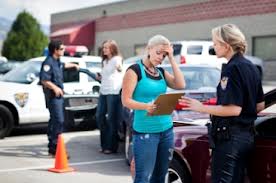 If you haven’t heard yet, April is “Distracted Driving Awareness” month. Although we aren’t perfect, I think the majority of us consider ourselves to be excellent drivers. Every now and again, however, I think that we can all honestly say that there may be something that causes us to take our eyes off the road, even if it’s just for a few seconds. Whether it’s a text, an incoming call, or even your crying baby in the backseat, it’s a distraction none the less. Although texting is probably the most common thing that you hear about these days, surprisingly, it is not the number one reason with respect to distracted driving.
If you haven’t heard yet, April is “Distracted Driving Awareness” month. Although we aren’t perfect, I think the majority of us consider ourselves to be excellent drivers. Every now and again, however, I think that we can all honestly say that there may be something that causes us to take our eyes off the road, even if it’s just for a few seconds. Whether it’s a text, an incoming call, or even your crying baby in the backseat, it’s a distraction none the less. Although texting is probably the most common thing that you hear about these days, surprisingly, it is not the number one reason with respect to distracted driving.
Using data collected from 2010 and 2011, an analysis was performed by an insurer out of Erie, PA. By using some of the top resources and information such as police report data in the Fatality Analysis Reporting System (FARS), a nationwide census of fatal motor vehicle traffic crashes maintained by the National Highway Traffic Safety Administration, and also the Insurance Institute for Highway Safety, the insurer was able to determine the top ten distractions involved in fatal car crashes.
Still think texting was the number one reason? Think again! The analysis reported that a whopping 62% of distracted drivers were either “lost in thought” or “generally distracted”….aka daydreaming. When I think about it, I can honestly say that I have definitely been guilty of daydreaming while at the wheel. With the busy schedules we keep and the hustle and bustle of getting from here to there, it’s easy to “zone out” while you are driving. Our minds are in a constant state of thought. Whether you are thinking about what you should make for dinner, wondering if you packed everything you needed for your weekend getaway, or simply trying to decide what exit you want to take, you are putting yourself, your loved ones, and others at risk. So the question now is how do you stop daydreaming and stay focused on the road? There are a number of things that you can do to accomplish this.
1 – Control Your Emotions: Do not let a fight with a friend or significant other interfere with your drive. Before you get behind the wheel, make the decision to put your emotions aside and make a plan. For example, tell yourself “When I get home, I’m going to call my friend Jenny to vent, because she gives good advice and perspective”.
2 – Pump Up the Jam: Put together a playlist or cd with music that gets you going. Songs that have 100-175 BPM (beats per minute) can help keep you alert.
3 – Let Some Air In: Open your windows. Seat warmers and heaters during the winter months, although cozy, can relax you right into the thought of being snuggled up in your own bed. Crack the windows, even if it’s just for a few minutes. Just like a cold shower can wake us up, so can a blast of cold air.
Whether it’s daydreaming, texting, or putting on your lipstick, there is no doubt that distracted driving is a growing epidemic. Be mindful of how you are feeling, both physically and mentally, before you start the ignition. Consider your drive a mission, even if it’s just to the grocery store, and get from point A to B in one piece. Carry on and drive safe!







